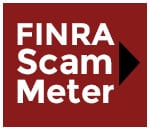Test Toll-Free: (800) 529-3951 | Albuquerque: (505) 514-0539 | Fax: (505) 792-6096 | Email: help@IRASTC.com |Hours of operation: Monday-Friday, 8:00AM-5:00PM MST TEST

Self-Directed Solo 401(k) Plan
If you are self-employed, or own a small business which is only staffed by you and a loved one, then a traditional retirement plan is not the best choice for you. Specifically designed by the IRS for small business owners, a Solo(k) Plan is a more flexible retirement option, which allows for the investment of funds into almost any type of asset, including real estate. Below, you can find our various resources on Self-Directed Solo(k) Plans, which can provide you with information on these plans, as well as tools, tips and forms to create your own Self-Directed Solo(k) account!
Features of a Self-Directed Solo(k) Plan
• Large Contributions. You can put more money in this plan, in excess of $56,000 each year per person.• Tax Free Loans. The loan feature allows you to access money in your retirement account when you need it, without paying taxes or penalties, just interest to yourself.
• Choose Your Tax Benefit. Contributions can be made tax free (Roth), tax deductible (traditional) or both.
• Flexible Contributions. You have the flexibility to change your contributions from year to year based on your income and profitability.
• Personal Line of Credit. You can create a personal or business “line of credit” by personally taking loans from your individual (K) and paying the interest back to your account.
• No Income Limits. You can make Roth contributions directly to the plan even if you are a high income earner.
Benefits of a Self-Directed Solo(k) Plan
• Complete Control. The ability to self-direct your Solo(k) account. You can invest in traditional investments like stocks and mutual funds but also have the ability to invest in real estate, FOREX, trust deeds, notes, tax liens and virtually anything else you can imagine.
• One Call That Does it All. Specialized Trust Company is the only company you will need to call to answer questions and service your account. No more calling your custodian and your administrator to get things done.
• Big Savings. We offer the most competitive fees in the industry. Now, everyone can afford to have an Solo(k).
• Simplified Paperwork. Our qualified plan application is short and straightforward unlike most Solo(k) paperwork.
• Flexible Fee Payment Options. Unlike other plans that require you to write a check upfront for all your fees, you can choose to pay your fees by check, credit card or have them deducted from your account once it is set up. *
*If you choose to pay your fees from inside your account simply pay the set-up fee of $195. All other fees will be deducted once your plan is established and your transfer, rollover or contribution is received.
Single-Participant 401(k) Plan (INDI OR SOLO)
One such qualified plan, the “single-participant plan”, is designed for business owners who have no full-time employees other than themselves and their spouse. This traditional 401(k) plan, which covers just one employee, has the same rules and requirements as any other 401(k) plan. The heightened interest in one-participant plans stems from the 2001 Economic Growth and Tax Relief Reconciliation Act (known as EGTRRA). EGTRRA changed how deductions for salary deferral contributions are treated by the IRS. The change encouraged some people to put additional amounts toward their retirement. High Solo 401k Contribution limits is one of the features which attracts much interest to this plan.
Many provisions of EGTRRA had a positive effect on qualified retirement plans. Among the most significant were an increase in the maximum salary deferral amount for 401(k) plans and the ability both to make “catch-up” contributions and to receive a plan allocation.
The regulatory climate for 401(k) plans had begun to change in the late 90’s. In 1996, in an effort to strengthen small businesses, Congress enacted a reforms package that included the Small Business Job Protection Act (SBJPA). In the legislation, Congress encouraged employers to offer 401(k) plans and other retirement plans. The SBJPA simplified nondiscrimination tests and repealed limits on contributions that could be made to a qualified retirement plan by an employee who also was enrolled in a defined benefit pension plan. During this period, the IRS issued a series of rulings encouraging automatic plan enrollment.
For more info please visit IRS web site: https://www.irs.gov/retirement-plans/401k-plans
ESIRA
The federal Employee Retirement Income Security Act (ERISA) of 1974 ushered in sweeping changes in the regulation of pension plans. It established minimum standards for plans in private industry and laying out tax consequences for transactions associated with employee benefit plans.
By regulating reporting and disclosure, funding, vesting, and fiduciary duties, ERISA aims at “assuring the equitable character” and “financial soundness” of pension plans. Furthermore, the act contains provisions that affect other benefit plans, such as profit-sharing plans and 401(k) plans.
Solo 401k Law allows sponsors of employee benefit plans to delegate investment responsibility to plan participants has become the basis for today’s self-directed Solo 401k plansCongress added section 401(k) to the Internal Revenue Code in 1978, allowing employees to defer compensation and the federal tax on it. The Solo 401k law became effective Jan. 1, 1980. However, it was not until Nov. 10 of 1981, that the IRS formally explained the rules for these deferred compensation plans.
Navigation:
Specialized Trust Company
Toll-Free: (800) 529-3951
Fax: (505) 792-6096
6100 Indian School Rd. NE Suite 215
Albuquerque NM, 87110
Email: help@IRASTC.com
Monday-Friday,
8:00AM – 5:00PM MST







